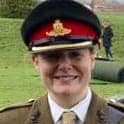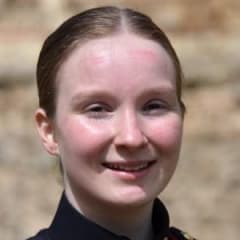Insider profil
Keen to receive questions about
Top Insider Advice
The army is more than what is seen in dramatised film and television. It’s a group of had working individuals who have learnt to be a part of the army, learnt their strengths and weakness, learnt what kind of job and job role suits them best. There is so much opportunity it is impossible to write it all here but information about the army has never been so easily accessible. The wealth of insight that can be gleaned, to help you determine the right career path in the army, is massive and can help you decide. Even if that decision is not to join the army, you won’t know until you have a look.
Career path
Recruiting Co-ordinator
Recruiting Group
Started 11/2022 to PresentRoyal Armoured corps Crewman
Household Calvary Regiment
From 01/2018 to 11/2022Incremental
Joint Service Sub Aqua Dive Center (JSSADC)
From 01/2017 to 12/2017Company
What do you like about your job and the company?
Most people I speak to, whether its potential candidates who come into the recruitment centre or (sometimes) their parents, few really understand the short- and longer-term benefits of a career in the British armed forces. There are those who apply with serving family members who may have encouraged their application but even then, few understand the list of financial benefits, that by far eclipse the perks of almost any civilian job. I enjoy talking about the subsidised food accommodation and family housing, the education incentives, free adventure training expeditions, sports training and equipment use, abroad travel with expenses paid and more. For example, I am currently granted 'home to duty' which means i get money to cycle to and from my place of work. One of the main 'takes' I give to potential recruits is that the army will allow you to choose what job role you want to do, then train you in that role paying for your tuition and (civilian recognised) qualification, then give you the job at the end! "Now!", I say after, the army expects you to give back in the form of 4 years’ service, but again this is the perfect opportunity to work in the job role you've chosen gaining experience within the army you can go on use elsewhere.
Greatest achievements
Exercise Cambrian patrol has been running for over 60 years and is the British Army’s principal All Arms Patrol Exercise. It is open to all three Services (Regular and Reserve) and international participants are encouraged to take part. The exercise is a mission focused and scenario-based exercise, but it is not a competition. However, throughout the patrol, performance is assessed based on Battlecraft Syllabus and Individual Training Requirement, in addition to robustness and leadership. Each patrol will cover approximately 60 kms (average climb and descent is over 1000m) carrying no more than 32 kgs per person. The Exercise is designed to be arduous, and all participants must be prepared both mentally and physically for the challenge ahead.
Aaron R
Vehicle Mechanic
Top Insider Advice
Personally joining the Army was a great decision. Its given me that stable career everybody wants. The opportunities within the Army are second to none whether it be from gaining qualifications in your chosen field to travelling the world doing various activities. If you give the Army your everything the Army will give you everything. As cliche as it sounds the army really does give you friends for life. You are all equally motivate and go through the same experiences which bonds you more than anything else in life.
Caitlin B
Top Insider Advice
The army has countless opportunities for everyone , take as many as you can- whether that's professional development for your trade or working towards instructor qualifications for adventurous training, the list is endless. Enjoy as much of your career as possible and have a laugh with your friends around you. That way when you do decide to leave the army, you know you've had the best time possible.
Shayne P
Army Air Corps CET LCpl
Top Insider Advice
I enjoy being part of a team and taking part in adventure training.








